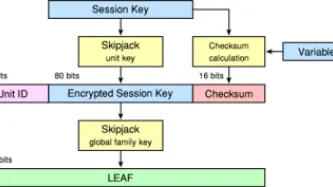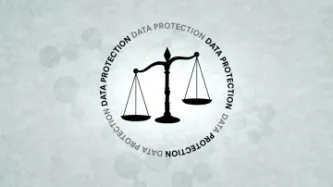Advanced Search
Content Type: Examples
In 2015, a series of interviews with Moshe Greenshpan, the founder and CEO of the Israeli company Skakash, revealed the existence of the company's facial recognition software Churchix. The software is intended to help churches keep track of who attends services and other events by matching reference photos provided by new congregants to images captured on cameras within the church. Greenshpan claimed that an added benefit is to enable churches to identify criminals and sex offenders by adding…
Content Type: Examples
In 2016, researchers at MIT's Computer Science and Artificial Intelligence Laboratory developed a new device that uses wireless signals that measure heartbeats by bouncing off a person's body. The researchers claim that this system is 87% accurate in recognising joy, pleasure, sadness, or anger based on the heart rate after first measuring how the individual's body reacts in various emotional states. Unlike a medical electrocardiogram, it does not require a sensor to be attached to the person's…
Content Type: Examples
In 2016, rising awareness of the profits pharmaceutical and other medical companies make from personal data such as DNA samples and cell lines led to the rise of a "biorights" movement to ensure that patients retain greater control over their contributions. A federal complaint filed by the American Civil Liberties Union on behalf of four people against Myriad Genetics Laboratories, a Utah-based company, asked the US Department of Health and Human Services to make sure patients retain access to…
Content Type: Examples
Twitter requested one of its key B2B partners, Dataminr — a service that offers advanced social media analytics and early detection of major events like terrorist attacks or natural disasters — stop providing U.S. intelligence agencies with their tools and content. Dataminr isn’t ending its relationship with the government altogether: Dataminir still counts In-Q-Tel, the non-profit investment arm of the CIA, as an investor. Dataminr has taken investment from Twitter, too, highlighting some of…
Content Type: Examples
In 2016, the Big Data lab at the Chinese search engine company Baidu published a study of an algorithm it had developed that it claimed could predict crowd formation and suggested it could be used to warn authorities and individuals of public safety threats stemming from unusually large crowds. The study, which was inspired by a New Year's Eve 2014 stampede in Shanghai that killed more than 30 people, correlated aggregated data from Baidu Map route searches with the crowd density at the places…
Content Type: Examples
According to the US security firm Statfor the Chinese government has been builsing a system to analyse the massive amounts of data it has been collecting over the past years. The company claims: "The new grid management system aims to help the Chinese government act early to contain social unrest. Under the new program, grid administrators each monitor a number of households (sometimes as many as 200). They then aggregate their reports into one enormous surveillance database, where it is…
Content Type: Examples
Between 2010 and 2016, access control spyware implementing a remote "kill switch" was installed increasingly often in rent-to-buy laptops and cars financed by subprime loans. In a 2012 case the Federal Trade Commission settled with seven computer rental companies over their use of DesignerWare's Detective Mode, an add-on to PC Rental Agent, which was installed by 1,617 rent-to-own stores on 420,000 computers around the world. Detective Mode required users to register with their address, phone…
Content Type: Examples
In 2012, London Royal Free, Barnet, and Chase Farm hospitals agreed to provide Google's DeepMind subsidiary with access to an estimated 1.6 million NHS patient records, including full names and medical histories. The company claimed the information, which would remain encrypted so that employees could not identify individual patients, would be used to develop a system for flagging patients at risk of acute kidney injuries, a major reason why people need emergency care. Privacy campaigners…
Content Type: Examples
A new breed of market research companies are pioneering geoanalytics to find complex financial information. That is, they use machine learning algorithms to search for patterns in high-resolution satellite imagery that's refreshed daily and available at the scale of 1 meter per pixel. Much of the information gleaned this way relies on detecting change or counting items such as cars or trucks parked in a particular location. The resulting financial insights are sold to paying customers such as…
Content Type: Examples
In April 2016, Google's Nest subsidiary announced it would drop support for Revolv, a rival smart home start-up the company bought in 2014. After that, the company said, the thermostats would cease functioning entirely because they relied on connecting to a central server and had no local-only mode. The decision elicited angry online responses from Revolv owners, who criticised the company for arbitrarily turning off devices that they had purchased. The story also raised wider concerns about…
Content Type: Examples
A new examination of documents detailing the US National Security Agency's SKYNET programme shows that SKYNET carries out mass surveillance of Pakistan's mobile phone network and then uses a machine learning algorithm to score each of its 55 million users to rate their likelihood of being a terrorist. The documents were released as part of the Edward Snowden cache. The data scientist Patrick Ball, director of research at the Human Rights Data Analysis Group, which produces scientifically…
Content Type: Examples
In 2016 the Dutch Data Protection Authority (AP) ruled that the Personal Data Protection Act prohibits companies from monitoring their employees' health via wearables, even when employees have given their permission. The ruling concluded the AP's investigation into two companies; in one of them, wearables even gave the employer insight into its employees' sleep patterns. The AP argued that employers are free to give wearables as gifts, but that the power relationship between employer and…
Content Type: Impact Case Study
PI and our global partners have been at the forefront of challenging communications data retention for over a decade.
What is the problem
Communications data, also known as metadata, tells a story about your digital activity and answers the who, when, what, and how of a specific communication. While communications data doesn't include the contents of a message, all of the other information about the message can be very revealing about people, their habits, thoughts, health and personal…
Content Type: Impact Case Study
What happenedThe Clinton Administration kicked off the cypto-wars in 1993 with the Clipper Chip. The continued application of export controls restrained the deployment of strong cryptography in products at a key moment of internet history: as it began to be embedded in software and networking. What we didIn the early phases of the crypto-wars we placed pressure on global industry to implement encryption in their products. We ran campaigns and events across the world on the need for strong…
Content Type: Impact Case Study
What is the problem
For over two decades we have been documenting an alarming use and spread of surveillance. It is no longer just the wars on terror or drugs or migration that is driving this trend. The management of health crises and distribution of welfare regularly are among others being used to justify this turn to increasingly invasive forms of surveillance. From country to country we see the same ideas and the same profiteers expanding their reach.
When we first released our report on…
Content Type: Impact Case Study
What is the problem
Business models of lots of companies is based on data exploitation. Big Tech companies such Google, Amazon, Facebook; data brokers; online services; apps and many others collect, use and share huge amounts of data about us, frequently without our explicit consent of knowledge. Using implicit attributes of low-cost devices, their ‘free’ services or apps and other sources, they create unmatched tracking and targeting capabilities which are being used against us.
Why it is…
Content Type: Impact Case Study
What happenedIn the aftermath of 9/11, Governments across the world rushed to legislate to expand surveillance. GovernmentsMoved to limit debate and reduce consultations as they legislated with speed.Created new systems to collect data on all travellers, for the purpose of profiling and risk scoring.Expanded identity schemes, and began demanding biometrics, particularly at borders.Developed financial surveillance mechanisms on an unprecedented scale.What we didFew non-governmental…
Content Type: Impact Case Study
What happenedGovernments continuously seek to expand their communications surveillance powers. In the 1990s it was in the context of applying telephone surveillance laws to the internet. In the 2000s a spate of new laws arrived in response to 9/11. Expansions were then sought to monitor over-the-top services within the framing of Web 2.0. Then in the post-Snowden environment Governments rushed to legislate their previously secret powers.What we didWe supported…
Content Type: Impact Case Study
What happenedUnder pressure to be more accountable for their use of resources, but also due to the post-9/11 push to track and identify terrorists across the world, the humanitarian and development sectors began increasingly to look to identity registration, including biometrics, and the collection and sharing of vast amounts of data on their beneficiaries. Development funding was supporting the deployment of ID systems, and both sectors were enthralled with ‘big data’ initiatives, all…
Content Type: Impact Case Study
What is the problem
In the 1990s privacy was often maligned as a ‘rich Westerner’s right’. We were told often that non-Westerners didn’t need privacy and had different cultural attitudes and would greet surveillance policies and technologies — often exported from the West.
Global civil society was composed mostly of a few individuals with no resources but great passion. The larger and more established NGOs, such as consumer and human rights organisations were less interested in ‘digital’ and ‘…
Content Type: Impact Case Study
What happenedSince the late 1980s governments across the world have been trying to build identity registries. By the early 1990s, there were similar policies being pursued by a number of governments across the Pacific region, with similar technologies from the same companies. In the mid-90s ID cards became a ‘modern’ policy, implementing smart cards. By 9/11 biometric IDs became the preferred solution to undefinable problems. Then came vast databases of biometrics to identify people — with…
Content Type: Impact Case Study
[Photo By Ludovic Courtès - Own work, CC BY-SA 3.0] Last update: 14 December 2022What is the problem and why it is importantUntil the early '10s, the right to privacy had been sidelined and largely unaddressed within the UN human rights monitoring mechanisms, despite being upheld as a fundamental human right in the Universal Declaration of Human Rights and the International Covenant on Civil and Political Rights (ICCPR).Beyond the ICCPR General Comment No.16: Article 17 (…
Content Type: Impact Case Study
What happenedStrong and effective data protection law is a necessary safeguard against industry and governments' quest to exploit our data. A once-in-a-generation moment arose to reform the global standard on data protection law when the European Union decided to create a new legal regime. PI had to fight to ensure it wasn't a moment where governments and industry would collude to reduce protections.In January 2012, the European Commission published a proposal to comprehensively reform the…
Content Type: News & Analysis
The UK police use a range of sophisticated technologies that raise serious privacy concerns because of the way in which they gather huge amounts of personal information about often large numbers of people in public places. You can download the leaflet above (just right click and save) and read more about these technologies.
If you agree with us that the police’s use of these technologies should be regulated to protect personal privacy, then please take part in our #spypolice campaign, and…
Content Type: Long Read
TO TAKE PART IN OUR CAMPAIGN, RIGHT CLICK ON THE PICTURES BELOW, SAVE THEM, AND SHARE THEM ON SOCIAL MEDIA TAGGED #SPYPOLICE
Have you ever been to a peaceful protest, demo or march? Did you assume that the police would only be identifying 'troublemakers'? How would you feel if just by turning up at a peaceful protest, the police automatically identified you, without your consent or knowledge, and stored personal information about you (including photographs of your face) in a secret database?…
Content Type: News & Analysis
Image was found here.
As part of Privacy International’s mission, we aim to take the issues emerging from our research and that of our partners to new spaces of debate and to the attention of stakeholders at the national, regional and international level.
In April 2018, Privacy International was able to engage for the first time with the African Commission on Human and People's Rights (ACHPR) at its 62nd Ordinary Session, which took place in Nouakchott, Mauritania.
The right to privacy does…
Content Type: Call to Action
Support our campaign against unregulated police surveillance technology by sharing our #spypolice posters on social mediaTake part in our #spypolice campaign!

























